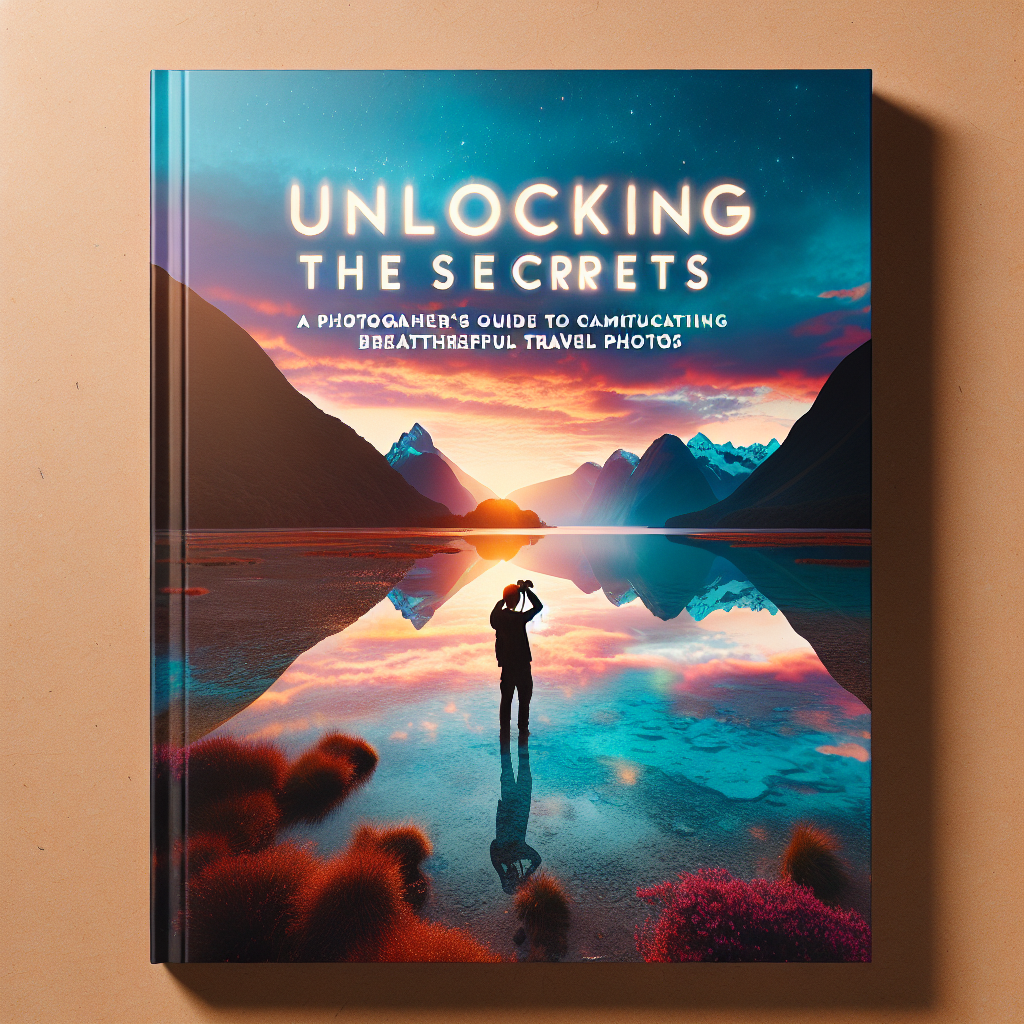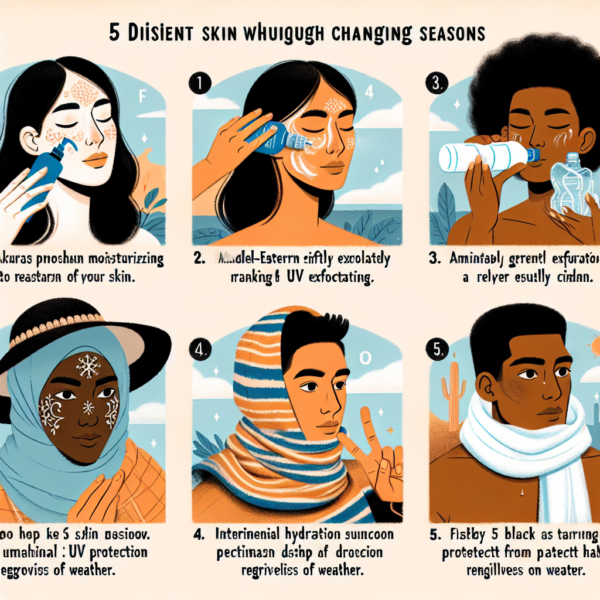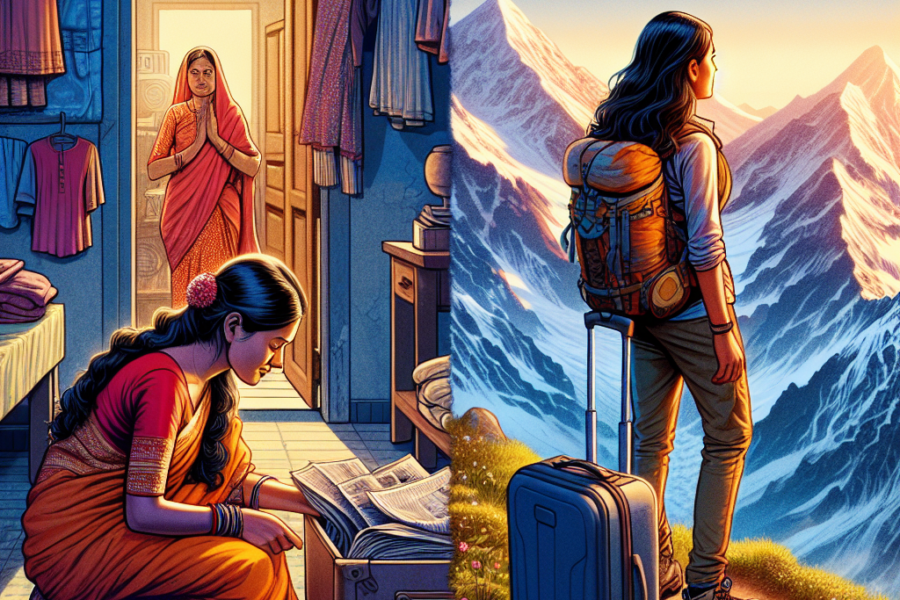Unlocking the Secrets: A Photographer’s Guide to Capturing Breathtaking Travel Photos
Photography is a powerful tool for capturing moments and memories that last a lifetime. When it comes to travel photography, the possibilities are endless. From stunning landscapes to vibrant cityscapes, there is no shortage of beautiful subjects to photograph. However, capturing these moments in a way that truly does justice to the scene can be a challenging task.
In this guide, we will explore the secrets to capturing breathtaking travel photos. Whether you are a beginner looking to improve your photography skills or an experienced photographer looking to take your photos to the next level, these tips and tricks will help you unlock the full potential of your travel photography.
Understanding Your Camera
Before we dive into the specifics of travel photography, it is important to understand the basics of using your camera. Whether you are shooting with a DSLR, mirrorless camera, or even a smartphone, understanding how to use your camera effectively is the first step to capturing stunning travel photos.
1. Know Your Camera Settings
One of the most important factors in achieving great travel photos is knowing how to adjust your camera settings to get the desired effect. Understanding concepts such as aperture, shutter speed, and ISO will allow you to control the exposure and focus of your images.
– Aperture: The aperture of your camera lens controls the amount of light that enters the camera. A lower aperture setting (such as f/2.8) will result in a shallow depth of field, while a higher aperture setting (such as f/11) will result in a greater depth of field.
– Shutter Speed: The shutter speed determines how long the camera’s shutter remains open when taking a photo. A faster shutter speed (such as 1/1000) will freeze motion, while a slower shutter speed (such as 1/30) will blur motion.
– ISO: The ISO setting determines the sensitivity of the camera’s sensor to light. A higher ISO setting will allow you to shoot in low light conditions, but it can also introduce noise into your images.
2. Use Manual Mode
While many cameras offer automatic shooting modes, using manual mode will give you greater control over your images. By adjusting the camera settings yourself, you can achieve the exact look you want in your photos.
3. Experiment with Composition
Composition is another key element of great travel photography. By carefully framing your shots and paying attention to elements such as leading lines, symmetry, and the rule of thirds, you can create visually compelling images that draw the viewer in.
4. Practice, Practice, Practice
The more you practice with your camera, the better you will become at capturing stunning photos. Take the time to experiment with different settings and subjects, and don’t be afraid to make mistakes. Learning from your errors is an important part of improving your photography skills.
Choosing the Right Gear
When it comes to travel photography, having the right gear can make a big difference in the quality of your photos. While you don’t need the most expensive equipment to capture great images, there are a few key pieces of gear that can help take your travel photography to the next level.
1. Camera Body
The camera body is the most important piece of gear for any photographer. While a high-end DSLR or mirrorless camera will offer more features and control over your images, even a basic point-and-shoot camera or smartphone can capture stunning photos with the right settings and techniques.
2. Lenses
Choosing the right lens for your travel photography is crucial. A wide-angle lens is ideal for capturing sweeping landscapes and architecture, while a telephoto lens can bring distant subjects closer and create beautiful bokeh effects.
3. Tripod
A sturdy tripod is essential for capturing sharp images, especially in low light conditions or when shooting long exposures. Look for a lightweight, compact tripod that is easy to carry while traveling.
4. Filters
Filters can be a valuable tool for enhancing your travel photos. A polarizing filter can reduce glare and enhance colors, while a neutral density filter can help you achieve long exposures in bright conditions.
5. Accessories
Other accessories, such as a camera bag, memory cards, and extra batteries, are essential for keeping your gear safe and ensuring you never miss a shot while traveling.
Capturing Stunning Landscapes
One of the most popular subjects for travel photography is landscapes. From majestic mountains to serene seascapes, capturing the beauty of the natural world can be a rewarding and challenging pursuit. Here are some tips for capturing breathtaking landscape photos on your travels.
1. Scout Locations
Before you start shooting, take the time to scout out locations and plan your shots. Look for interesting foreground elements, leading lines, and the best vantage points to capture the scene in the most compelling way.
2. Shoot at Golden Hour
The golden hour, the period of time just after sunrise and before sunset, is the best time to capture stunning landscape photos. The soft, warm light creates a magical atmosphere and enhances the colors of the landscape.
3. Use a Wide-Angle Lens
A wide-angle lens is ideal for capturing sweeping vistas and dramatic landscapes. Experiment with different focal lengths and compositions to create dynamic and engaging images.
4. Create Depth
To create a sense of depth in your landscape photos, include elements such as foreground objects, leading lines, and layers of interest. This will draw the viewer into the scene and create a more immersive experience.
5. Experiment with Long Exposures
Long exposures can create captivating effects in landscape photos, such as silky smooth waterfalls and streaking clouds. Use a tripod and a neutral density filter to achieve long exposures in bright conditions.
6. Post-Processing
Don’t be afraid to use post-processing techniques to enhance your landscape photos. Adjusting colors, contrast, and sharpness can help bring out the full potential of your images.
Capturing Vibrant Cityscapes
Cityscapes are another popular subject for travel photography. The bustling streets, iconic landmarks, and vibrant energy of a city can provide endless opportunities for stunning photos. Here are some tips for capturing vibrant cityscape photos on your travels:
1. Find Unique Perspectives
When photographing cityscapes, look for unique perspectives and vantage points that offer a fresh take on familiar landmarks. Consider shooting from high vantage points, using reflections, and framing your shots creatively.
2. Experiment with Light Trails
Capturing light trails from cars and traffic can add a dynamic and visually compelling element to your cityscape photos. Use a tripod and a slow shutter speed to create long exposures of moving lights.
3. Include People
Including people in your cityscape photos can add a sense of scale and human interest to the scene. Look for interesting gestures, interactions, and moments that help tell the story of the city.
4. Embrace the Night
Cityscapes take on a whole new character at night, with the glow of neon lights and the twinkle of city lights creating a magical atmosphere. Experiment with long exposures and light painting to capture the city after dark.
5. Capture Street Life
Don’t forget to capture the everyday moments and scenes that make up the fabric of a city. From street vendors to bustling markets, these candid shots can provide a glimpse into the local culture and lifestyle.
6. Edit with Care
When editing your cityscape photos, be careful not to overdo it. Enhance colors, contrast, and sharpness subtly to preserve the natural beauty of the scene.
Telling a Story with Your Photos
Great travel photos not only capture the beauty of a destination but also tell a story and evoke emotions in the viewer. Whether you are documenting the daily life of a bustling city or capturing the grandeur of a natural landscape, here are some tips for telling a compelling story with your travel photos:
1. Focus on Details
Details can often tell a more compelling story than wide shots. Look for interesting textures, patterns, and small moments that capture the essence of a place and help bring your photos to life.
2. Capture Emotions
Emotions are a powerful tool for storytelling in photography. Look for expressions, gestures, and interactions that convey a sense of mood and atmosphere in your images.
3. Look for Contrast
Contrast in light, color, and subject matter can create visual interest and tension in your photos. Experiment with contrasting elements to create a more dynamic composition.
4. Pay Attention to Light
Light is one of the most important factors in photography, influencing the mood, atmosphere, and storytelling of your images. Whether you are shooting in soft, diffused light or harsh, direct light, pay attention to how the light shapes your subjects and scenes.
5. Capture Moments
Candid moments and spontaneous interactions can often result in the most powerful and emotionally resonant images. Be ready to capture these fleeting moments as they unfold, and be prepared to act quickly to ensure you don’t miss the shot.
6. Edit with Intention
When editing your photos, think about how you can enhance the story and mood of the image. Experiment with cropping, color grading, and other editing techniques to emphasize the key elements of your story.
Conclusion
Travel photography is a rewarding and challenging pursuit that allows you to capture the beauty of the world and share it with others. By understanding your camera, choosing the right gear, and mastering composition and storytelling techniques, you can unlock the full potential of your travel photography and capture breathtaking images that will inspire and awe viewers.
Whether you are a beginner looking to improve your skills or an experienced photographer seeking to take your photos to the next level, these tips and tricks will help you capture the essence of your travels in stunning and memorable photos. So pack your bags, grab your camera, and set out on your next adventure armed with the knowledge and inspiration to capture breathtaking travel photos.








Leave a Comment